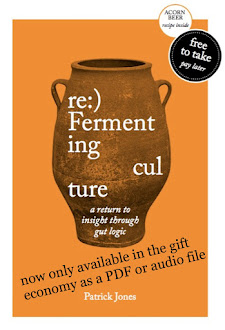The title for this post is a line from a neopeasant folk-punk song I recently wrote, which harks back to what I discovered in my doctoral research: that the production of nuts, pulses, grains and fruit require the wholesale killing of wild birds. No food, I have argued in many places before, is ethical if it is commercialised because money asserts a special kind of pressure on life that non-monetary gardening, farming, hunting and foraging does not. Business indebtedness to the money system applies an incalculable pressure on ecologies in order to guarantee the crop or harvest does not fail. If this means gassing, poisoning and shooting wild birds then that is what occurs, and my research has found this takes place on the smallest commercial farm to the largest. Various government agencies produce research surveying which wild critters negate monetised agriculture, such as this one. And this recent newspaper article demonstrates once again that commercial "vegan-friendly" food doesn't really exist.

Despite what members of the
Australian Food Sovereignty Alliance and others might espouse there is no ethical meat in Australia that is bought, and despite what militant vegans might advocate there are no ethical nuts, pulses, grains and fruit either. Food that isn't under monetary lock and key has a greater opportunity to be produced in relationship with the broader biome. Like many food industries including almond, peach, fish and pork, countless species (and relationships) go to waste in order to procure the one desirable harvest or produce one specific crop. This is the monological nature of monetised food. Of course, food labelling is so poor in Australia few really know what they're eating and certainly less know of the biome harm that is done to produce food.
To bring this story home, we neopeasants net and scare off wild birds from our fruit and nut trees, and occasionally kill the odd raiding critter, which has the effect of deterring others. However, nothing of this taken life is wasted and with such lovely fruitarian flesh we make more life possible. For us all is food, all is life, all is the exchange of energy and matter from one form into another. Money corrupts this relationship and constructs wasteful industries. The so-called ethical food movement needs to radicalise and transition to non-monetary economies if we are to attempt to stop species decline, climate chaos and anthropogenic violence on the earth.
While this may seem crazy to suggest in a certified capitalist society, viewed from the context of money's assault upon the living world (from small business to big), we have to start thinking whole-biome culture, which essentially requires macrobiome economy.
Read more...







